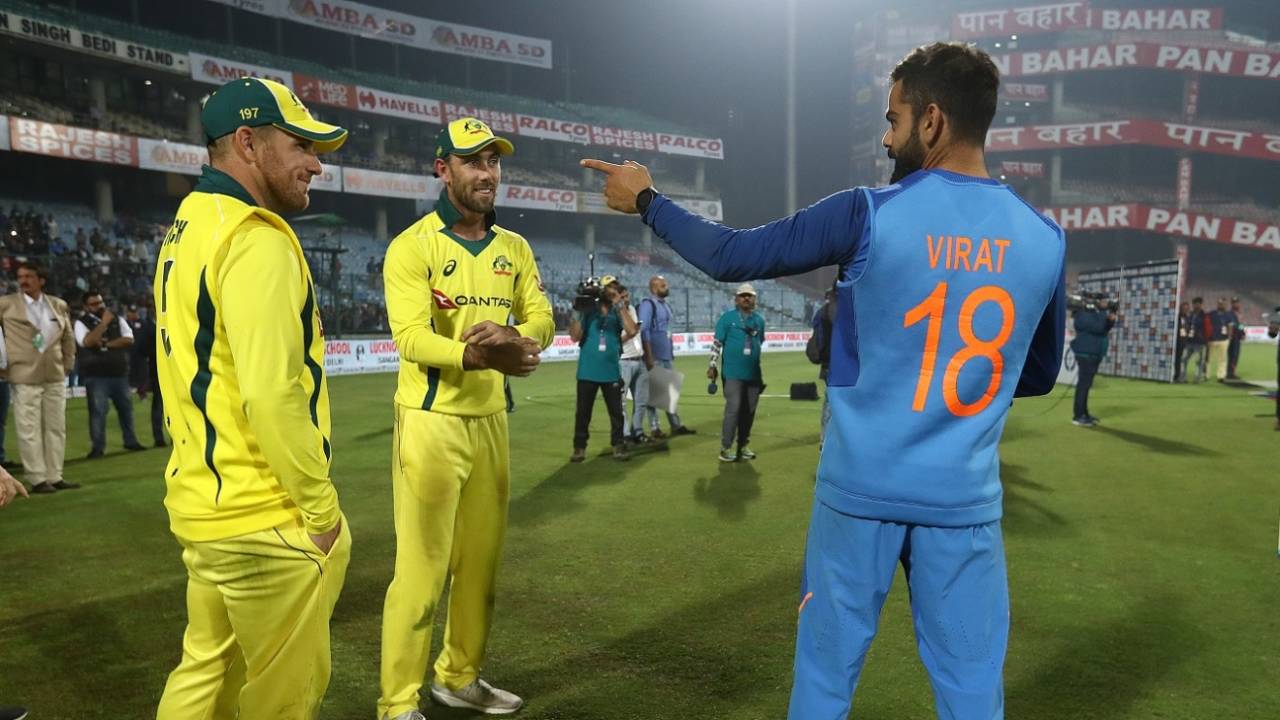Who are the leading contenders for the World Cup?
Five teams make their presence felt
Ian Chappell
Apr 14, 2019, 1:30 AM
India and Australia have batting firepower and well rounded bowling attacks • Getty Images
In checking past World Cup scorecards of games played in the UK to try and gain a clue as to who might win in 2019, one thing stands out: the teams with the best bowling attack generally make the final.
The one exception is in 1983, where India upset the short-priced favourite, West Indies, to set off a revolution in the one-day game. However, it should be noted that India did have a wily seam attack that cleverly exploited the helpful conditions.
And therein lies a clue to likely success in an England ODI tournament - the conditions. If it's a damp summer then the team with the best seam attack will start with a huge advantage, as batting will be a challenge. If, on the other hand, it's a dry summer, the batsmen will have the upper hand and it'll be the attacks with plenty of variety - the accent on genuine pace and spin - that are likely to make the final.
Barring injuries, the teams most likely to fit that criterion are Australia, England, India, New Zealand and South Africa.
That's five possible winners, and I wouldn't totally discount the suddenly much-improved West Indies and the highly unpredictable Pakistan. The 2019 World Cup promises to be the most openly contested in the UK, and it may well be hardest to predict of all the premier ODI tournaments that have been played.
In breaking down those five teams most likely to feature the best attacks, it's worth noting they all have wristspinners who have been highly effective. India with two are probably best served, but Imran Tahir and Adil Rashid are both very successful, with Adam Zampa and Ish Sodhi the most underrated. If the pitches are well worn near the end of the tournament, Kuldeep Yadav and Yuzvendra Chahal will be licking their lips.
As far as genuine pace bowlers go, Australia and South Africa are prominent. Australia could have three in that category, and South Africa, with Dale Steyn's re-emergence, are also well situated. India are also well placed, with the explosive Jasprit Bumrah and the indefatigable Mohammed Shami leading the way. They, along with the New Zealand pair of Trent Boult and Tim Southee, are probably best equipped to exploit any favourable seaming conditions.
It'll be interesting to see if England select Jofra Archer. His inclusion would mean a pacy trio where he combines with Mark Wood and Liam Plunkett, but that could also be at the expense of David Willey's swing.
Whatever the conditions - damp or dry - it'll be the teams that are able to claim wickets regularly, particularly in the middle overs, that will prevail. That puts the onus on the batsmen to provide their team with enough runs to clinch victory.
ALSO READ: How are World Cup squads stacking up?
If the pitches are generally flat then England's power laden line-up have displayed the ability to intimidate opposing attacks and post huge targets. India have a top three to match any team, with the emphasis on Virat Kohli's incredible ability to score big and take his team home to victory in a chase. A lot will depend on how much the middle order contribute, but Hardik Pandya's return would bolster the late hitting power.
The much anticipated return of David Warner and Steven Smith from suspension will substantially boost Australia's run-getting ability. The big question mark for the defending champions is how Aaron Finch and Usman Khawaja will cope against the stronger attacks, especially if there is encouragement for the pace bowlers.
Of the top teams, the batting side that will be most challenged is South Africa. They are heavily reliant on Quinton de Kock and Faf du Plessis, and with their reputation for regular World Cup brain fades still lingering, they have a lot to prove.
With so many ifs and buts surrounding both teams and conditions, the 2019 World Cup is a prediction minefield; exactly as an elite tournament should be.
Former Australia captain Ian Chappell is a cricket commentator for Channel Nine, and a columnist
